 March 4, 2020 John E. Ross, KD8IDJ, Editor
| ||||||
ARRL Foundation Announces ARDC Scholarship Matching Grant ARRL Foundation President Dr. David Woolweaver, K5RAV, announced this week that the nonprofit Amateur Radio Digital Communications (ARDC) has generously agreed to award the ARRL "The ARRL Foundation Board is honored to partner with ARDC to award ARDC's Amateur Radio Digital Communications' Brian H. Kantor, WB6CYT, Memorial Scholarship grant for 2020," Woolweaver said. "These scholarships, made possible by ARDC's generous contribution, will assist many young amateur radio operators in their pursuit of education at colleges, universities, and graduate schools." Last July, ARDC announced it would use the proceeds from its sale of some 4 million unused consecutive AMPRNet internet addresses to fund its operations and to establish a program of grants and scholarships to support communications and networking research -- with a strong emphasis on amateur radio. ARDC has said that it intends to award "a total of several million dollars in grants of varied amounts" to qualified beneficiaries, to be used in accordance with ARDC's mission. ARDC awarded grants in 2019 and so far in 2020 to several amateur radio-related entities, including a generous award to the Amateur Radio on the International Space Station (ARISS), the Foundation for Amateur Radio scholarship program, the GNU Radio Project, TAPR, The ARRL Foundation and ARDC are negotiating the terms for ARDC's 2021 - 2022 academic year scholarship awards, which will consist of scholarships separate from those the ARRL Foundation already administers. The winners of the ARRL and matching ARDC scholarship awards for the upcoming school year will be announced in the September issue of QST. Dayton Hamvention Officials Keeping an Eye on Coronavirus Situation With Dayton Hamvention® 2020 a little more than 10 weeks away, Hamvention officials say they are closely following the coronavirus (COVID-19) situation. Show organizers will post updates as the May 15 - 17 event nears, but they're optimistic that coronavirus will not be an issue. "At this time, the Hamvention Executive Committee has been in contact with the Greene County Public Health Department, and we do not anticipate any impact because of this issue," a March 3 "Greene County Public Health is working closely with the Ohio Department of Health and the Centers for Disease Control and Prevention, and are prepared to respond, should there be a community spread of COVID-19," the Hamvention statement noted. "The current risk to the general public is very low. Travel advisories are in effect, and can change anytime, so please see the CDC Travel Advisory web page before traveling." The Hamvention advisory pointed out the best ways to prevent becoming infected or spreading the virus:
The Ohio Department of Health also offers helpful information regarding COVID-19. Dayton Hamvention takes place May 15 - 17 at the Greene County Fairgrounds and Expo Center in Xenia, Ohio. Henry Radio Los Angeles Founder Ted Henry, W6UOU, is 100! Henry Radio Los Angeles founder Ted Henry, W6UOU, turned 100 years old on January 25. The fascinating Henry family history in amateur radio marketing and manufacturing dates back to the late 1920s. The original Henry Radio shop, started by Ted's brother Bob Henry, W0ARA (SK), opened in 1927 in Butler, Missouri. It stayed in business until Bob died in 1985. Ted and another brother, Walt, later W6ZN, worked with Bob Henry during the early years and became fascinated with ham radio. After Ted moved to Los Angeles in 1941, he opened a small radio shop, which he operated while attending college at UCLA
with the intention of going into teaching. His shop survived the suspension of amateur radio during World War II by purchasing gear from hams and reselling it to MARS stations around the world, and by manufacturing crystals (in Butler and Los Angeles) for Hallicrafters' war production. The LA store grew quickly after the war, expanding to a new location where it operated for nearly 35 years, becoming a gathering spot for hams visiting from around the world. Walt Henry opened a Henry Radio branch in Anaheim, California, in the 1960s, which closed in 1990, after his health declined. In 1962, Ted Henry began manufacturing tube-type power amplifiers for the ham radio market, starting with the original Henry 2K. Many of the popular line of HF amplifiers remain in use today. The plant expanded into the industrial RF equipment sector. In the 1970s, the company developed its own line of solid-state amplifiers, which it still manufactures for various services. Henry Radio also became the first Kenwood dealer in the US, marketed the Tempo line of ham gear, and is the oldest dealer for Bird RF test equipment.The current store on South Bundy Drive in Los Angeles opened in 1981. Ted Henry retired from the business in 2005. -- Thanks to Marty Woll, N6VI; Henry Radio ARRL Podcasts Schedule
The latest (February 13) episode of the On the Air podcast focuses on building the hands-free soldering tool from the article, "Extend Your Handheld's Range with a Simple Ground-Plane Antenna," seen in the January/February 2020 issue of On the Air magazine; a discussion of open-wire feed lines, and an interview with a public service volunteer. A new On the Air podcast will become available on March 12.
Both podcasts are available on iTunes (iOS) and Stitcher (Android) as well as on Blubrry -- On the Air | Eclectic Tech. Dayton Hamvention Names 2020 Award Winners Dayton Hamvention® has named five radio amateurs and one ham radio club as the recipients of its 2020 awards. Amateur of the Year Yasuo "Zorro" Miyazawa, JH1AJT, was named Amateur of the Year. Licensed in 1964 at age 15, Miyazawa became interested in DXing Special Achievement Award Jordan Sherer, KN4CRD, of Atlanta, Georgia, is the recipient of the Technical Achievement Award Hamvention bestowed its Technical Achievement Award on a group of Club of the Year The South Canadian Amateur Radio Society (SCARS) of Norman, Oklahoma, is the 2020 Club of the Year. An ARRL Special Service Awards will be presented during Hamvention, May 15 - 17, at the Greene County Fairgrounds and Expo Center in Xenia, Ohio. Read more. International Space Station Resupply Mission to Carry New ARISS Ham Radio Gear The scheduled March 7 (UTC) SpaceX CRS-20 mission to the International The ARISS hardware team built four flight units, and the first will be installed in the ISS Columbus module. A second flight unit expected to be launched on a later 2020 cargo flight will be installed in the Russian Service Module. NASA contracts with SpaceX to handle ISS resupply missions. The IORS represents the first major upgrade of on-station ARISS equipment. The package will include a higher-power radio, an enhanced voice repeater, and updated digital packet radio (APRS) and slow-scan television (SSTV) capabilities for both the US and Russian The ARISS hardware team remains busy on IORS development and final certification. While the initial unit has been certified for launch and stowage on ISS, the team is still deep into the final certification of the IORS for flight operations, and construction of a second flight unit is in progress. ARISS will mark 20 years of continuous amateur radio operation on the space station in November. The K7RA Solar Update Tad Cook, K7RA, Seattle, reports: Last week's Friday bulletin (ARLP009) noted that NASA STEREO images showed two bright spots, magnetically complex, about to rotate over the sun's eastern horizon and onto the visible solar disc. I was hoping these might develop into sunspots, but they just faded away, so currently we have seen no sunspots in more than a month. Clearly, we are still at solar minimum.
This period of low solar flux and very stable geomagnetic indicators is great for 160-meter propagation, especially during the winter season, when atmospheric noise is low. Predicted solar flux over the next 45 days is 70 on March 5 - 12, and 71 on March 13 - April 18. Predicted planetary A index is 5 on March 5 - 10; 8 on March 11 - 12; 5 on March 13 - 14; 10, 8, 10, and 8 on March 15 - 18; 5, 10, 8, and 5 on March 19 - 22; 8, 12, 10, and 5 on March 23 - 26; 5 on March 27 - 30; 20, 15, and 8 on March 31 - April 2, and 5 on April 3 - 18. Sunspot numbers for February 27 - March 4, 2020 were 0, 0, 0, 0, 0, 0, and 0, with a mean of 0. The 10.7-centimeter flux was 70.9, 70.6, 70.1, 69.3, 69.3, 70, and 69.8, with a mean of 70. Estimated planetary A indices were 4, 6, 11, 8, 5, 6, and 7, with a mean of 6.7. Middle latitude A index was 2, 4, 8, 6, 4, 4, and 4, with a mean of 4.6. A comprehensive K7RA Solar Update is posted Fridays on the ARRL website. For more information concerning radio propagation, visit the ARRL Technical Information Service, read "What the Numbers Mean...," and check out K9LA's Propagation Page. A propagation bulletin archive is available. Monthly charts offer propagation projections between the US and a dozen DX locations. Share your reports and observations. Just Ahead in Radiosport
See the ARRL Contest Calendar for more information. For in-depth reporting on amateur radio contesting, subscribe to The ARRL Contest Update via your ARRL member profile email preferences. IARU Region 2 Seeks Young Hams to Help Reshape Amateur Radio International Amateur Radio Union (IARU) Region 2 (R2, the Americas) is looking for a few young hams interested in helping to remake amateur radio for the 21st century. "Frustrated that there are so few of your friends and age group that are interested in ham radio? Frustrated that amateur radio is in a rut, not doing more or different things with technology? Concerned that an According to the announcement, IARU R2 is looking for volunteers who would brainstorm ideas and possible actions to make amateur radio more attractive to a younger generation. "We're not looking for a single magic approach. After all, amateur radio means many things to many people. Rather, we're looking for possible ways to target specific interests that are either part of ham radio today or could be part of ham radio in the future to recruit and retain new amateurs," the solicitation said. IARU R2 said it's looking for radio amateurs between the ages of 18 and 35 who have been licensed for more than 1 year. Applicants must be self-starters willing to take initiative, exercise creativity, and volunteer their time. If interested, contact IARU Region 2 Secretary George Gorsline, VE3YV, telling why you are willing to volunteer, your current interests, and your thoughts on solutions. "Ideally, we would like to have as many parts of the Americas represented as possible," IARU R2 said in its announcement. "This is more than a think tank. We're prepared to provide funding to try out some of the proposed ideas to see how well they work. We expect that some ideas will work, others won't, and different things will work in different parts of the Americas -- one size will not fit all. As part of the work, IARU R2 would propose to send one person to the IARU R1 YOTA youth camp to experience the camp, meet with the R1 youth coordinators to learn about what they are doing in Europe and Africa, to exchange ideas, and to explore what joint activities might be done." -- Thanks to Joaquin Solana, XE1R, IARU Region 2 Motorola Wins Multimillion Dollar Theft of Trade Secrets Case Against Hytera A jury for the US District Court of the Northern District of Illinois has awarded Motorola Solutions damages of $764.6 million in its theft of trade secrets and copyright infringement lawsuit against Hytera Communications of Shenzhen, China. In 2017, Motorola filed complaints in federal court alleging that Hytera's digital mobile radio (DMR) products employed techniques and systems that infringed on Motorola Solutions' patents and trade secrets. Already known for its Motorola alleged that proprietary and patented information was taken illegally by three former company engineers who went to work for Hytera, as "part of a deliberate scheme to steal and copy" its technology. The company said it would seek a global injunction to prevent Hytera from trade secret misappropriation and copyright infringement, a Motorola spokesperson said following the verdict. Motorola said technology features it developed started showing up in Hytera products soon after Hytera began hiring former Motorola engineers in 2008, according to the lawsuit. In a statement, Hytera expressed disappointment and disagreement with the verdict and said it would appeal. But, the company went on to say that it has "enhanced its corporate governance and added new policies and procedures related to intellectual property and the onboarding of new employees." Hytera also said it's "engaged in an ongoing process of removing the affected source code from the products at issue and has been rolling out updated software to the marketplace." In Brief...
Upcoming ARRL Section, State, and Division Conventions
Find conventions and hamfests in your area.
. .
Subscribe to...
Free of charge to ARRL members...
| ||||||
.jpg) Foundation a grant to match the Foundation's 2020-2021 scholarships on a dollar-for-dollar basis, up to a total of $200,000.
Foundation a grant to match the Foundation's 2020-2021 scholarships on a dollar-for-dollar basis, up to a total of $200,000. and the YASME Foundation.
and the YASME Foundation.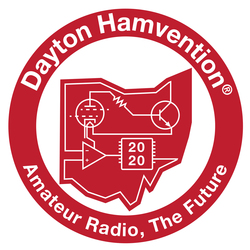 Hamvention statement said. The Greene County Public Health Department reports that no cases of COVID-19 have been confirmed in Ohio.
Hamvention statement said. The Greene County Public Health Department reports that no cases of COVID-19 have been confirmed in Ohio.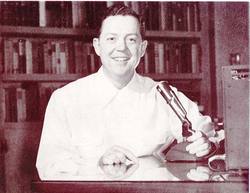
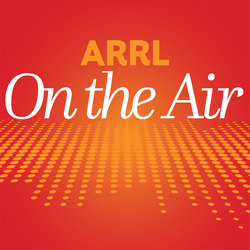
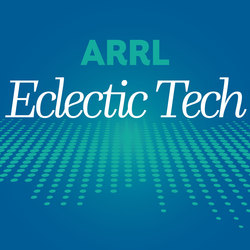 The latest episode of the Eclectic Tech podcast went live February 27. Episode 2 touches on these topics: Most expensive home PC ever; Alexa and amateur radio; solar activity's influence on whales, and a HamSCI update from Ward Silver, N0AX.
The latest episode of the Eclectic Tech podcast went live February 27. Episode 2 touches on these topics: Most expensive home PC ever; Alexa and amateur radio; solar activity's influence on whales, and a HamSCI update from Ward Silver, N0AX..jpg) and, later in his life, international humanitarian activities. He was inducted into the CQ DX Hall of Fame in 2015. His many DXpeditions focus not just on handing out contacts but cooperating with the local population to implement needed humanitarian activities. In 2010 he established the Foundation for Global Children (
and, later in his life, international humanitarian activities. He was inducted into the CQ DX Hall of Fame in 2015. His many DXpeditions focus not just on handing out contacts but cooperating with the local population to implement needed humanitarian activities. In 2010 he established the Foundation for Global Children (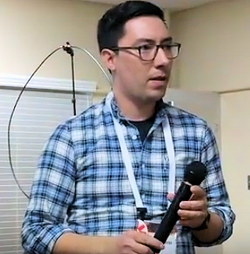
.JPG) three radio amateurs who have become well-known for their development of the WSJT-X digital software suite. The 2020 award recipients are Steve Franke, K9AN; Bill Somerville, G4WJS, and Nobel Laureate Joe Taylor, K1JT. Over the past 7 years, the trio has collaborated on all aspects of WSJT-X -- in particular the digital protocol FT8 and its contesting variant FT4. Introduced in July 2017, FT8 now accounts for a significant portion of all HF ham radio activity.
three radio amateurs who have become well-known for their development of the WSJT-X digital software suite. The 2020 award recipients are Steve Franke, K9AN; Bill Somerville, G4WJS, and Nobel Laureate Joe Taylor, K1JT. Over the past 7 years, the trio has collaborated on all aspects of WSJT-X -- in particular the digital protocol FT8 and its contesting variant FT4. Introduced in July 2017, FT8 now accounts for a significant portion of all HF ham radio activity.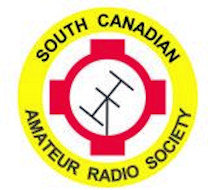 Club formed in 1977, the club has worked through its website, Facebook, YouTube channel, and weekly newsletter to expand its reach to thousands of hams from the local area to around the globe. The club takes emergency communication very seriously. NWS
Club formed in 1977, the club has worked through its website, Facebook, YouTube channel, and weekly newsletter to expand its reach to thousands of hams from the local area to around the globe. The club takes emergency communication very seriously. NWS  Space Station (ISS) will include the initial Amateur Radio on the International Space Station (ARISS) Interoperable Radio System (IORS) flight unit, which is listed as a primary payload. The IORS is the foundation of the ARISS next-generation amateur radio system on the space station. Once at the space station, the IORS will be stowed for later installation.
Space Station (ISS) will include the initial Amateur Radio on the International Space Station (ARISS) Interoperable Radio System (IORS) flight unit, which is listed as a primary payload. The IORS is the foundation of the ARISS next-generation amateur radio system on the space station. Once at the space station, the IORS will be stowed for later installation.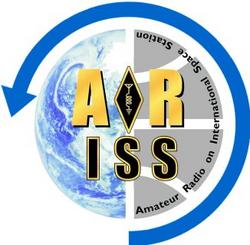 space station segments. The IORS consists of a custom-modified JVCKenwood TM-D710GA transceiver, an AMSAT-developed multi-voltage power supply, and interconnecting cables.
space station segments. The IORS consists of a custom-modified JVCKenwood TM-D710GA transceiver, an AMSAT-developed multi-voltage power supply, and interconnecting cables.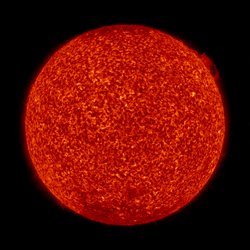 Over the past week, average daily solar flux shifted from 70.5 to 70, average daily planetary A index stayed the same at 6.7, while average daily mid-latitude A index dipped from 5 to 4.6.
Over the past week, average daily solar flux shifted from 70.5 to 70, average daily planetary A index stayed the same at 6.7, while average daily mid-latitude A index dipped from 5 to 4.6.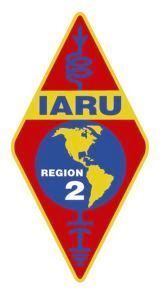 aging demographic means ham radio is dying? And that our frequencies will be sold out to the highest bidder because there aren't enough hams to show that we use them?" IARU Region 2 said in a March 3
aging demographic means ham radio is dying? And that our frequencies will be sold out to the highest bidder because there aren't enough hams to show that we use them?" IARU Region 2 said in a March 3  Land Mobile Radio Service products, Hytera entered the amateur radio DMR market in 2016. Its ham products include the Hytera AR482Gi digital mobile radio.
Land Mobile Radio Service products, Hytera entered the amateur radio DMR market in 2016. Its ham products include the Hytera AR482Gi digital mobile radio.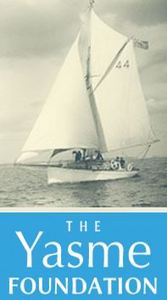 The
The 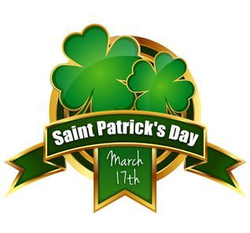 Many radio amateurs around the world will celebrate Saint Patrick's Day on the air as part of the
Many radio amateurs around the world will celebrate Saint Patrick's Day on the air as part of the  A
A 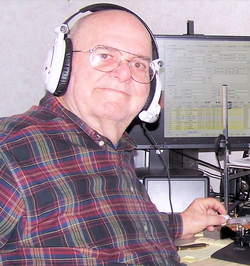 Former CQ Magazine Awards Editor Eddie De Young, KS4AA, has passed away. Weeks after stepping down due to health issues, CQ Amateur Radio Magazine Awards Editor Eddie De Young, KS4AA (ex-VK4AN, KH6GLU, AE7AA), of Clearwater, Florida, died on February 25, after a period of ill health. He was an ARRL member. De Young had held the position for less than a year, according to CQ Editor Rich Moseson, W2VU. A ham since 1954, De Young migrated to Australia in 1974, earning Wireless Institute of Australia (WIA) DXCC Honor Roll, 7-Band DXCC Award of Excellence, and DXer of the Year. He served as WIA Awards Manager and was an incoming QSL bureau manager in VK4. He returned to the US in 2012. De Young took part in several DXpeditions over the years. Succeeding De Young at CQ will be Jim Houser, WA8JIM, of Bartlett, Illinois.
Former CQ Magazine Awards Editor Eddie De Young, KS4AA, has passed away. Weeks after stepping down due to health issues, CQ Amateur Radio Magazine Awards Editor Eddie De Young, KS4AA (ex-VK4AN, KH6GLU, AE7AA), of Clearwater, Florida, died on February 25, after a period of ill health. He was an ARRL member. De Young had held the position for less than a year, according to CQ Editor Rich Moseson, W2VU. A ham since 1954, De Young migrated to Australia in 1974, earning Wireless Institute of Australia (WIA) DXCC Honor Roll, 7-Band DXCC Award of Excellence, and DXer of the Year. He served as WIA Awards Manager and was an incoming QSL bureau manager in VK4. He returned to the US in 2012. De Young took part in several DXpeditions over the years. Succeeding De Young at CQ will be Jim Houser, WA8JIM, of Bartlett, Illinois.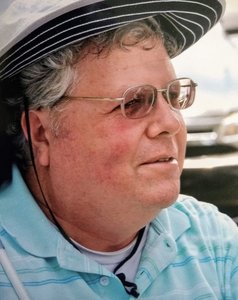 The president of the River City Amateur Radio Communications Society in California, Paul McIntyre, KC5JAX, was one of two individuals killed on February 28 in a knife attack by a client at a recovery center. McIntyre, a father of two, had been interning at the Wellness and Recovery Center in Carmichael as part of his training to become a social worker. He was 57. Two other victims survived the attack. McIntyre's club reported that he was a longtime mentor and volunteer, and he was passionate to help others learn and enjoy amateur radio. He served for years as a club officer, on the Board of Directors, as net coordinator, and was a regular Field Day participant. "He's a wonderful, brave blind man who had no defense against what happened here," a Fox40 KTXL
The president of the River City Amateur Radio Communications Society in California, Paul McIntyre, KC5JAX, was one of two individuals killed on February 28 in a knife attack by a client at a recovery center. McIntyre, a father of two, had been interning at the Wellness and Recovery Center in Carmichael as part of his training to become a social worker. He was 57. Two other victims survived the attack. McIntyre's club reported that he was a longtime mentor and volunteer, and he was passionate to help others learn and enjoy amateur radio. He served for years as a club officer, on the Board of Directors, as net coordinator, and was a regular Field Day participant. "He's a wonderful, brave blind man who had no defense against what happened here," a Fox40 KTXL 







